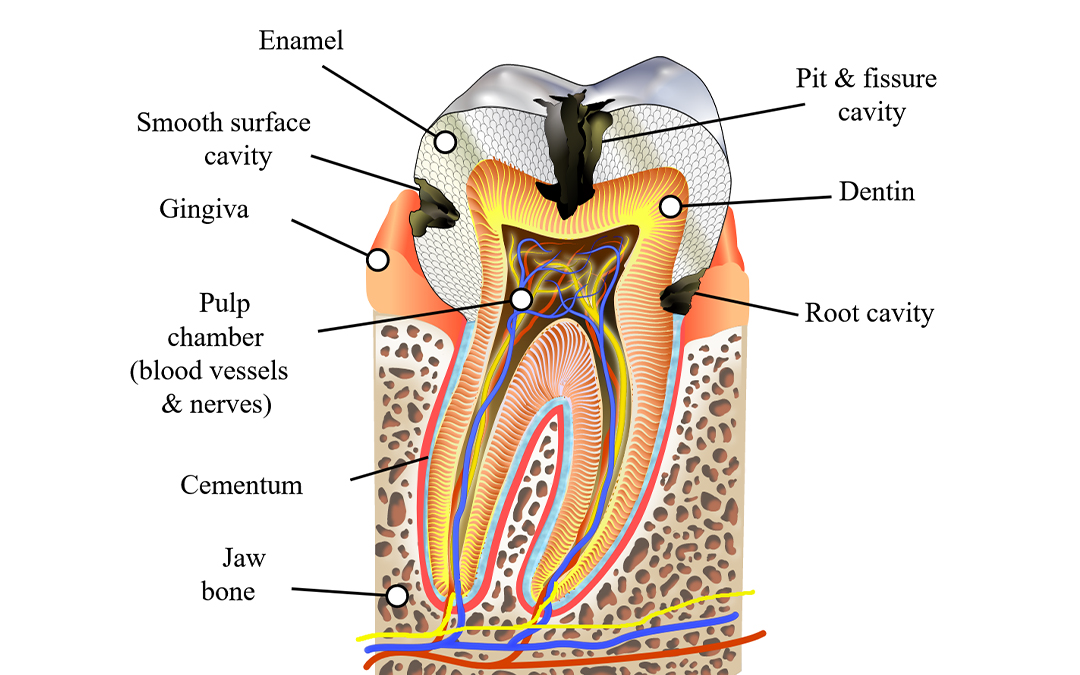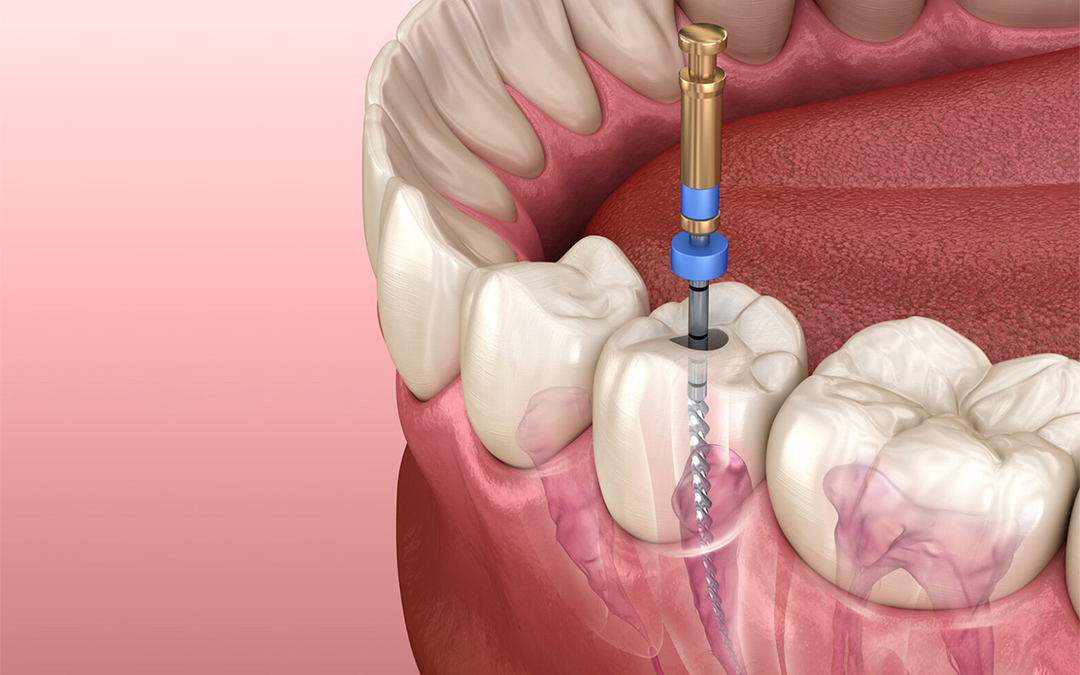- drkamalsdentalclinic@gmail.com
- +91 99098 52222
The Crown of a tooth is a three-layered structure namely – Enamel, Dentin & Pulp. If the tooth decay is limited to initial part or the first two layers, it can be corrected with Filling/ Restoration. In case the tooth decay reaches the third layer and causes inflammation or infection of pulp, root canal procedure is needed then.
Root Canal Treatment (RCT) is a procedure done when the tooth decay reaches the pulp (innermost layer of the tooth) causing inflammation. It is necessary to save the damaged tooth from extraction. This procedure is done by an Endodontist who is known as a Root Canal Specialist and the steps involves.


Root Canal Treatment is done on a damaged or infected tooth. Infection could be due to a cracked or broken tooth, deep decay, gum diseases or maybe due to repeated dental treatment on that particular tooth. It becomes extremely important to get the Root Canal Treatment done as:
Very first step involves an X-ray which is taken to determine the extent and approach to infection.
local anesthesia is administered before starting the treatment.
The next step is Cavity Preparation. A cavity is prepared, making sure all the infected tooth material or previous filling material is removed and a proper approach to inner-part of the tooth (pulp) is established.
This is followed by disinfection and shaping of pulp canals. The infected pulp is removed completely, canals are shaped and cleaned. Thorough disinfection is achieved.
Clean and disinfected canals are then sealed and filled with an inert filling material known as Gutta-Percha.
Very last step is final restoration & crown. The crown portion of the tooth cavity is then restored with a filling, followed by a Cap/Crown cementation.
The price of a RCT depends on the location and health of the afflicted tooth, as well as whether or not a crown is required. If the infection in your tooth is not treated, it might spread to adjacent teeth, gums, or even travel to other parts of your body, which will further become much more expensive in the future.
No, an infected tooth cannot heal itself. In fact, the infection can spread to other areas of your jaw causing serious pain.
No, a root canal treatment is pain-free. However in rare cases with high infection and high inflammation some amount pain can be experienced. Before proceeding with the root canal treatment, a dentist will use local anaesthesia to numb the infected area ensuring a painless treatment. Now a days painless injection systems are available for more comfortable experience.
Once the root canal treatment is completed, the treated tooth will heal within a few days. Patients might experience some pain once they awaken from anaesthesia; this is likely to end within a few days due to medication.
Most root canal treatment can be successfully completed by a dentist in a single day. However In certain cases of serious infection or back tooth, a dentist may give 2-3 days appointment for finishing the treatment.
Treatment results are same for both according to research articles. In case of high infection and high inflammation multiple visit is preferred.most of the cases are completed with single sitting visits, only few requires multiple visit.